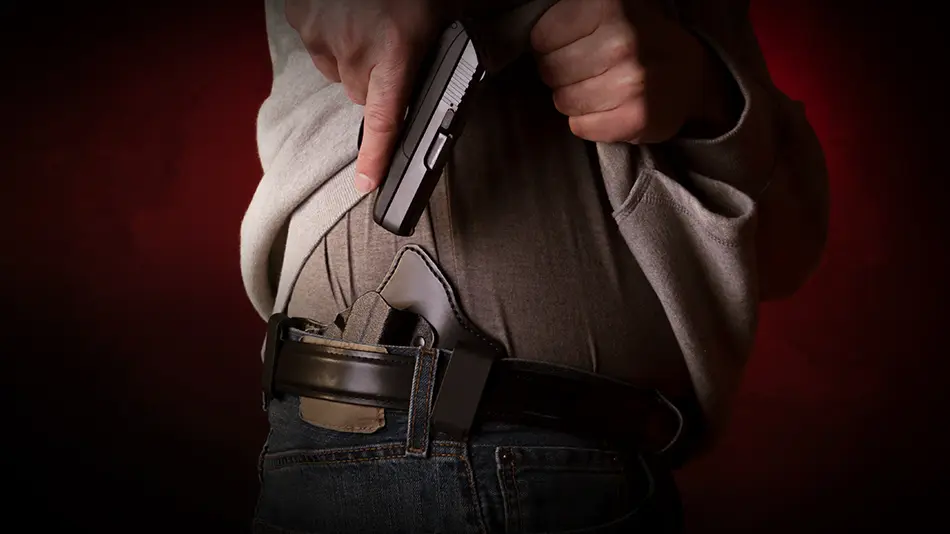The following is a video transcript.
Speaking with police officers can be intimidating. Today, we are going to go over the best practices and common pitfalls that are made when talking with the police after witnessing or being involved in an incident.
Reporting Crime
What should you do when you are reporting a crime to the police?
Every case is different, but simply making a report of a crime, such as being a victim of a car burglary, could help the police catch perpetrators or retrieve your belongings. In these situations, you are clearly not the target of an investigation and what you say should not be used against you.
If, however, at any point in making a report to the police you feel the questioning is turning into an accusatory nature or you simply feel uncomfortable answering further, you should invoke your rights to remain silent and hang up the phone or leave the station. If the police attempt to stop you from ending the interaction, invoke your right to have an attorney present and stop talking.
When reporting a crime that you witnessed but were not involved in, you need to be sure that the officer understands what you did and did not see. Police are human just like you and me, and it is possible for them to make a mistake when taking down your account of what happened. This is especially true when police speak to multiple witnesses, which makes the blending of accounts more likely.
Do not guess at anything. Only tell the police what you know. It is very important this information is accurate as you may be called as a witness months or even years later to testify in court. You will be relying on the statements you previously made to refresh your memory of the events that took place, so they must be accurate.
Acting in Self-Defense
If you are reporting a situation where you were involved (for example, if you were forced to protect yourself or another against a crime) do not make any statements until you are able to speak with an attorney.
Having to use your firearm in self-defense is a very traumatic experience, and it is vital that you have time to gather your thoughts and think through exactly what happened before making a statement.
To put things into perspective, when police officers are involved in a shooting, they are typically given 24 to 48-hours before they are required to provide an official statement. This is because they understand it is traumatic and if they were to give a statement immediately after the event, they may not be able to remember everything clearly.
Unfortunately, we as civilians are not always given this benefit.
When reporting an incident to police dispatchers or the police you absolutely DO NOT want to say anything along the lines of:
- “I killed him,” or
- “I kept shooting him.”
All you need to do is dial 911, tell the operator you are the victim of a crime, an ambulance is needed, your location, and then hang up.
If you are in an incident where you are forced to use self-defense, tell the police you invoke your rights and you’d like to speak to your attorney before making any statements.
Additionally, we see people forget to invoke and exercise their right to remain silent because they are still worked up from the incident. It is crucial that you take a moment to cool down, not attempt to intervene in their investigation, and if questioned, tell the officer you want to speak with your attorney before making any statements.





Good information. The background music is annoying and should be removed so that we can better hear the speaker. At the very least turn down the volume of the background music.
Thank you Chris! We have heard your feedback and have adjusted the audio level of the video for your viewing pleasure. Enjoy!
As a retired police detective, I put many people in jail, not because of evidence, but because they talked too much.
That’s a good reminder
Wonderful advice keep it coming
Ronald Statzer says:
“As a retired police detective, I put many people in jail, not because of evidence, but because they talked too much.”
Mr. Statzer makes an excellent point. The job of the police is to accuse and convict, not necessarily to achieve justice. Any statement made by a witness or victim may be easily misconstrued or taken out of context. And in the adrenalin-driven aftermath of a confrontation, you may easily phrase something that makes you sound guilty, whether you are or not.
The police have their job, and their techniques for accomplishing it. Let them do the work. It’s not your responsibility to “help” them try to find you guilty of a crime.
For sure silence is golden !!!!
Never say, “I killed JImmy Hoffa.” lol
All this is great information. But, for my family, I have drilled each member on their right to an attorney. Specifically, if they are with me, or even in proximity to an event without me, the police officer(s) are going to separate us to ask questions. I have instructed each to invoke their right to an attorney and say NOTHING until our attorney is present. People! Educate your family and prepare them for any event, too!
I agree with Chris Williams, we are after information and not a drama presentation…This is great info and please keep it coming but without the background music
It’s so easy to talk too much. We all just want to be understood and accepted or for someone to tell us everything will be ok in a situation like that. But that’s not reality. If we choose to carry I think we need to rehearse to ourselves every day what we would do and say if we ever had to defend ourselves.
Great information. It’s hard to keep quite when you feel your in the right and you are a victim.
Thank you for the informative tips. This one article makes my family’s membership worth every penny of it.
In a self-defense case where there is a shooting and the victim/911 caller invokes the 5th amendment and wants a lawyer, will that person be arrested and booked? What happens after I stop talking and there’s a wounded or dead attacker involved? I wouldn’t imagine the police wouldn’t let me go home. A ride to jail would be another trauma on top of surviving a crime. Can you cover this in another video?
When the adrenalin starts rushing, you want to talk about the incident and it is hard to keep quiet. Always ask for an attorney first. Just make sure to keep all details to yourself and let your attorney do the talking for you. As they say “Silence is Golden”.
I was arrested for DUI in the past. I did not want to speak to the police. I exercised my right to remain silent, aside from saying I will not speak unless my attorney is present. When I was at the booking, a nicer officer(yes, the other arresting officers were jerks) asked if I was going to do a breathalyzer or give blood. I repeated that I needed to speak to my attorney before I made any decisions. The officer gave me a phone. I made a call and couldn’t reach my attorney. At that point he said he NEEDED an answer(as to a blood or breath test) to fill out his report. Such a nice guy he was. Silly tipsy me, I answered “neither.” My question is, could I have still not answered? Should I have asked for an attorney to be assigned to me before I answered anything? I was charged and sentenced with a plea deal DWAI.
I watch a lot of real life murder mystery shows and it seems like when anyone uses their right to remain silent or right to an attorney, the police construe that as being uncooperative. Then police will will keep going after this uncooperative person and seemingly not look into any other leads because they feel that anyone who is uncooperative must be guilty. What’s your take on this?
Inform the authorities and remain silent!!!
Yeah, my wife tried to assist the police with an “interview, not an investigation”. As a good citizen, she answered all the officers questions openly and honestly because she had not done anything wrong. The following day those wonderful League City officers showed up and put her in handcuffs because it was easier than doing a real investigation. $10,000 later and me having to start a third job, all charges were dropped. Lesson learned: DO NOT trust the police. They are not you’re friends. We wished TLS had been around then.
MUCH more details upon request.
I’ll be straight up I have 3 rules in today’s world usa…
#1 TRUST NO ONE.
#2 Be HONEST in all you do for YOUR sake….
#3 Refer to rules #1 & #2…
The End.
Here in good ol junction city kansas these cops have been harassing my family and I over 20 years….
when I returned from the west coast after being gone for 22 years and only been arrested 3 times for traffic related incidents… they were in for a BIG surprise.i had educated myself on 3 years of college national criminal law and 3 years each of psychology sociology and have a 6 camera system in my vehicle that shoots the memory up into the cloud account just in case they take my hard drive..